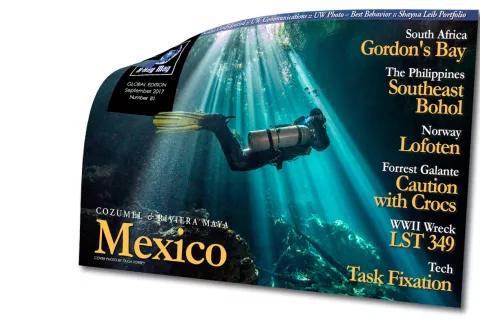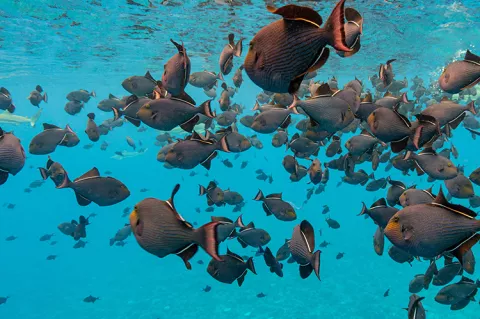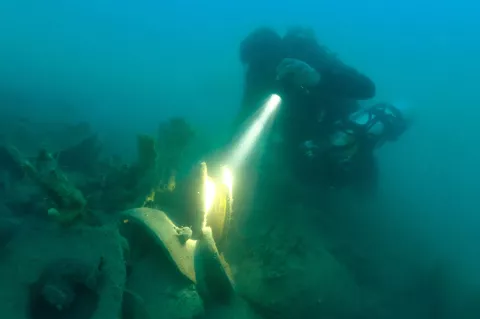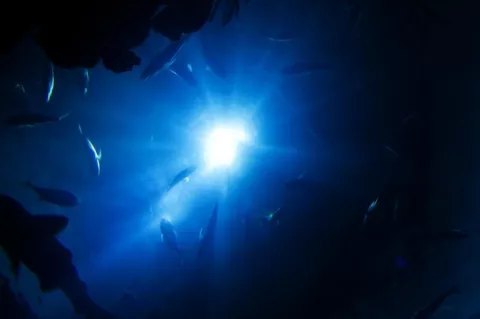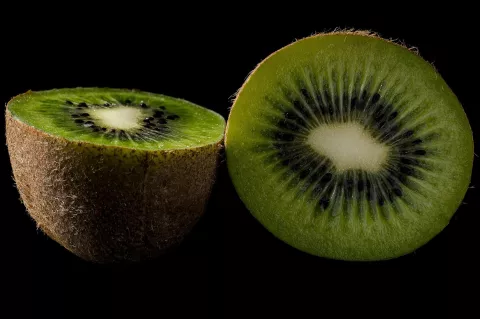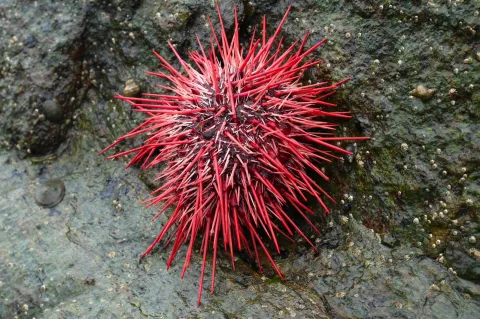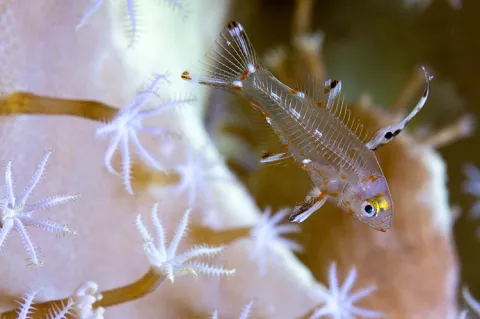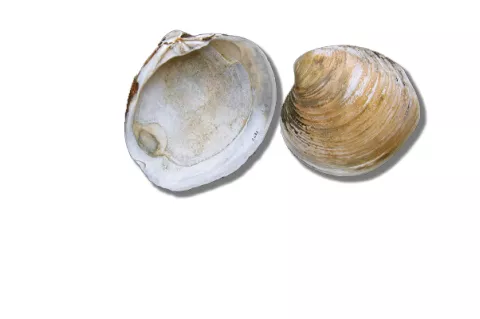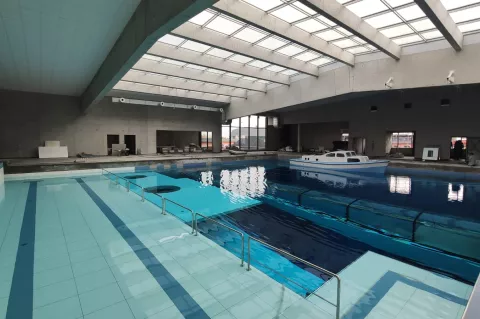Latest
The Fabulous Spawning Ritual of Striated Surgeonfish
During a seven-year study of reef sharks in Tahiti, ethologist Ila France Porcher also observed the behaviours of various fish species. Here, she offers a detailed description and insights into the dynamic and mesmerising spawning events of the striated surgeonfish, which take place every year in the South Pacific.
Ming Pottery Wreck: Exploratory Expedition in the Gulf of Thailand
There are many benefits to living in Asia. One advantage is that the waters around Asia still have countless numbers of unexplored shipwrecks. As a certified technical diver and an explorer at heart, the Gulf of Thailand has been my playground.
The Folly of Depth Records
As the international diving community has recently come to witness, a scandal surrounding Ahmed Gabr’s world record for deepest scuba dive has surfaced. Was it faked? Some accusers, who have opted to remain anonymous for reasons I shall not comment on at this point, have alleged that his record dive was faked, and to that end, have presented to the public a quite comprehensive compilation of evidence in support of their case. The documentation was compelling, but the jury is still out.
Can Antioxidants Protect Scuba Divers?
A recent study, published in The Journal of Physiology, shows that acute oral intake of antioxidants Vitamin C and E prior to a scuba dive can reduce alterations in cardiovascular function that are caused by a single air dive.
A group of professional divers were studied before and after a moderate scuba dive to a depth of 30 meters for 30 minutes, similar to those enjoyed by countless recreational divers.
- Read more about Can Antioxidants Protect Scuba Divers?
- Log in to post comments
Sea Urchin Could Help Cure Diseases
A purple sea urchin has 70 percent of its genes in common with humans, including genes associated with such diseases as Huntington’s, Parkinson’s, Alzheimer’s and muscular dystrophy.
There are roughly 100 human disease genes in the sea urchin genome.
Researchers said they believe similarities in the genes of sea urchins could one day help them better understand how the human immune system works.
- Read more about Sea Urchin Could Help Cure Diseases
- Log in to post comments
IATA calls for systematic COVID-19 testing of all international travelers
To re-open borders without quarantine and restart aviation governments need to be confident that they are effectively mitigating the risk of importing COVID-19. This means having accurate information on passengers’ COVID-19 health status.
IATA Travel Pass will manage and verify the secure flow of necessary testing or vaccine information among governments, airlines, laboratories, and travellers, the International Air Transport Association (IATA) writes in a press release.
Sharpening Underwater Images in Postproduction
The sharpness of a photograph depends on the camera in use, the lens and the camera settings. Every lens has an optimal range with respect to its sharpness performance.
Elyse Fournier Portfolio
Originally from Quebec, Canadian self-taught multidisciplinary artist and horticulturist Elyse Fournier creates fantastic worlds within worlds, using a combination of techniques from painting by brush to fluid acrylic pouring on canvas, bringing to life surreal and abstract underwater scenes mixing vivid color and wandering imagination.
Clam lived to be over 500 years old
This makes the otherwise unassuming Arctica islandica clam the longest lived animal species on record, though some corals are probably much older. The clam was initially named Ming by Sunday Times journalists, in reference to the Ming dynasty, during which it was born.
Researchers from Bangor University in North Wales – unaware of the animal’s impressive age – determined the age by drilling through and counting rings on its shell (a technique known as sclerochronology). In the process the clam died.
- Read more about Clam lived to be over 500 years old
- Log in to post comments
45m-deep diving pool opens in Poland
Unlike regular swimming pools, Deepspot can open despite corona-virus restrictions in Poland because it qualifies as a training centre because it offers courses.
Deepspot is located in Mszczonow, a town in central Poland, about 40 kilometers away from the Polish capital Warsaw. Construction began in mid-2018.
- Read more about 45m-deep diving pool opens in Poland
- Log in to post comments
Haweel underwater case for iPhone
Chinese manufacturer Haweel has extended its range of underwater housings for Apple iPhones with a new model that supports iPhone 11, XR, XS, X, 8 and 7 (including 8+ and 7+).

